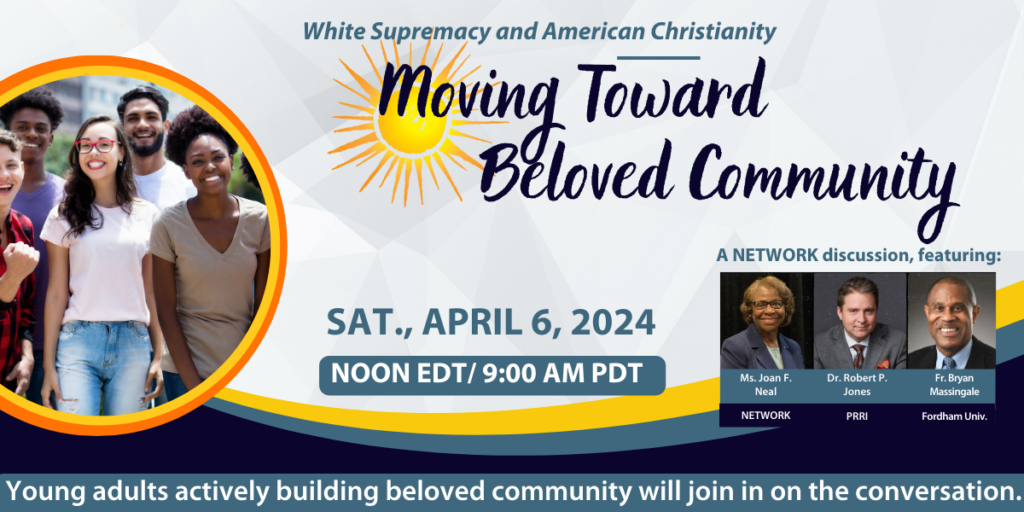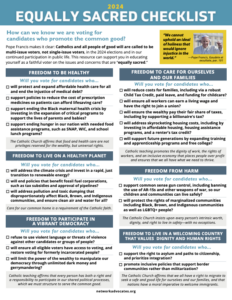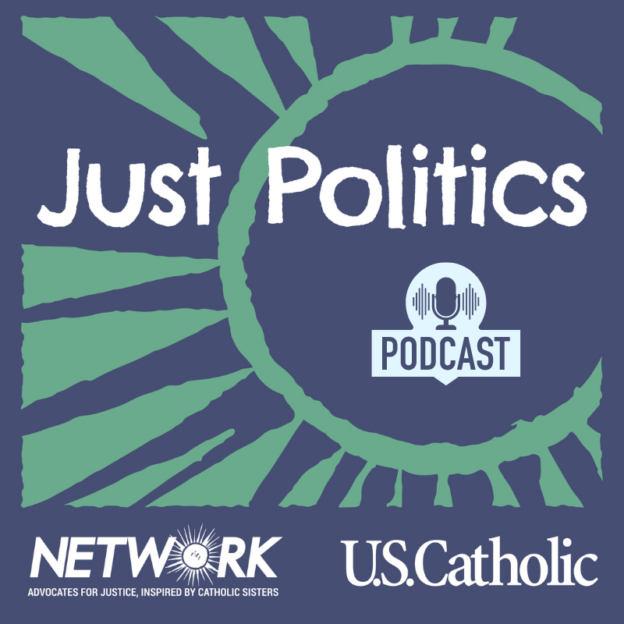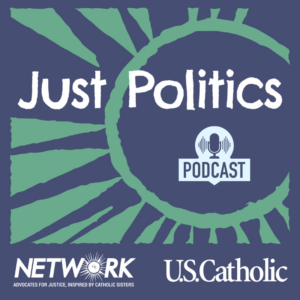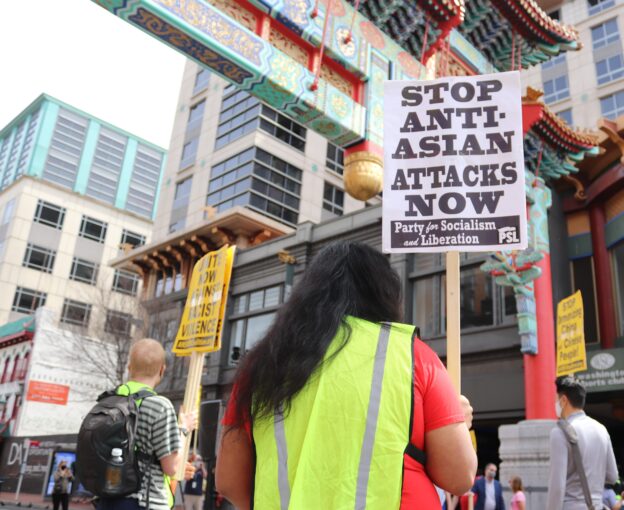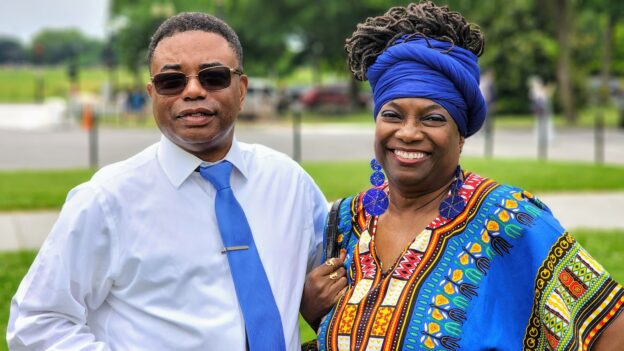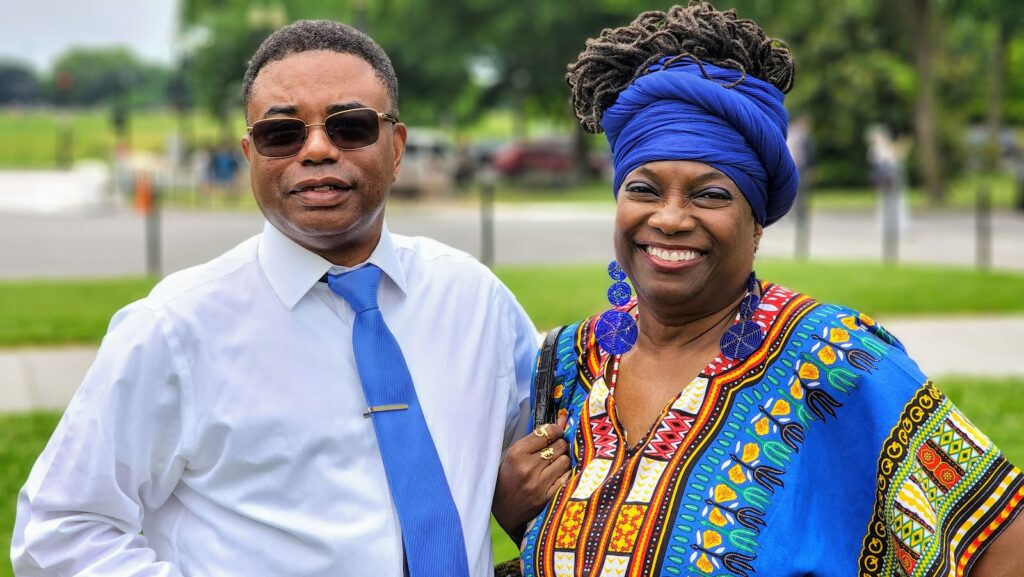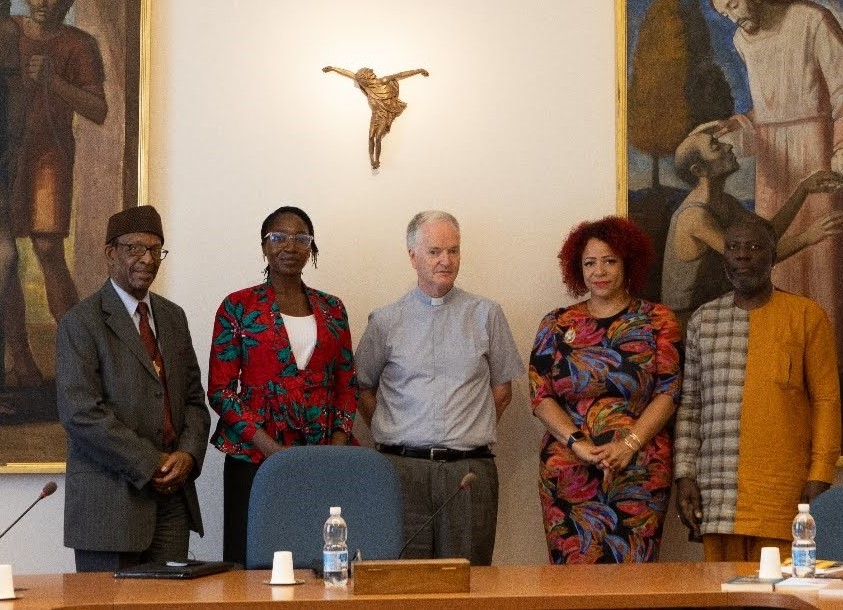
Lent Week Six: We Rise Up Together
NETWORK Staff
March 20, 2024
Scripture: Palm Sunday
Reflection: As we enter Holy Week this Sunday with Palm Sunday, we read the familiar passion narrative from the Gospels. In many Catholic communities, all the congregants will participate in reading aloud this story — because it’s a story of all of us, together.
In this Gospel reading, the people together urge Pilate to execute Jesus, saying: “Crucify him!” It’s a devastating reflection of the harm we can do when we collectively exclude and condemn our neighbors. It reflects how the existence of injustices like poverty, racism, mass incarceration, and the abuse of immigrants is a collective, societal failure. When we let exclusionary attitudes get the better of us, and cooperate with exclusion, structures of sin and injustice keep going.
 But Easter is also a collective reality—something we experience in community—and an invitation to something new, for all of us. In Eastern Christianity, we have the image of the Resurrection depicted as not only Jesus springing from his tomb alone, but of leading others to God communally. We are raised up together. As this week’s prayer from NETWORK Lobby Board Chair Sr. Catherine Ferguson, SNJM expresses:
But Easter is also a collective reality—something we experience in community—and an invitation to something new, for all of us. In Eastern Christianity, we have the image of the Resurrection depicted as not only Jesus springing from his tomb alone, but of leading others to God communally. We are raised up together. As this week’s prayer from NETWORK Lobby Board Chair Sr. Catherine Ferguson, SNJM expresses:
We are grateful, O Christ,
that you chose not to rise alone but
to lead all of us together to resurrection
and new life.
Jesus promises that the new life of resurrection is one of solidarity, justice, and peace. It is a transformation of all the structures and systems that keep our communities from having what we need and deserve to thrive. Resurrection gives us a hope that says: things can be different. God invites us to new life, not only at the “end of time” but also here on Earth, now!
But we only move into the new life of the resurrection together. No matter our age, where we were born, where we live, or what we look like, we are raised up together. Together, we can create change, and join in building that new life of justice and peace—as we and our ancestors have done before in struggling for greater justice and freedom. We can make a collective choice to step into the new life to which we are called.
That collective choice starts with each of us, and a commitment. Take the Pope Francis Voter Pledge below and join in building anew a country where all of us can thrive, together!
Lenten Prayer
Easter Prayer by NETWORK Lobby Board Chair Sr. Catherine Ferguson, SNJM
Easter is here!
Christ is risen from the dead
– and we are grateful, O Christ,
that you chose not to rise alone but
to lead all of us together to resurrection
and new life.
Our hearts rejoice in this resurrection
which releases us from the fear of death.
We pray that our living your resurrection this Easter
may reveal and guide us
in your vision for the common good,
embodying solidarity and compassion.
We pray for the commitment to make the necessary choices
in our politics and in our policies
to bring about the Beloved Community
in a flourishing, renewed society.
May Easter be lived by all of us together!
This we pray in the name of Jesus.
Amen.
Take Action
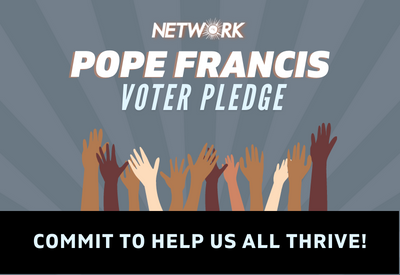
Will you pledge to be a Pope Francis Voter?
When you pledge to be a Pope Francis Voter, you commit to vote for candidates who uphold everyone’s freedom to:
- Be Healthy
- Care for Ourselves and Our Families
- Live on a Healthy Planet
- Participate in a Vibrant Democracy
- Live Free from Harm
- Live in a Welcoming Country that Values Dignity and Human Rights
This year, Pope Francis Voters are called to be informed, engaged, and committed multi-issue voters and to participate in the public life so that we all have what we need to thrive. Pledge to be a Pope Francis Voter today!









 As we look ahead to the stark choice we face in the 2024 election, it becomes clear that what needs to die in us is apathy, despair, and all the hatred, anger, and us-versus-them mindsets that keep us from solidarity with our neighbor. All of these things–the division and disengagement–help the wealthy and powerful amass power and resources, while hard-working people in our communities are deprived of the resources needed to live the dignified life we all deserve.
As we look ahead to the stark choice we face in the 2024 election, it becomes clear that what needs to die in us is apathy, despair, and all the hatred, anger, and us-versus-them mindsets that keep us from solidarity with our neighbor. All of these things–the division and disengagement–help the wealthy and powerful amass power and resources, while hard-working people in our communities are deprived of the resources needed to live the dignified life we all deserve.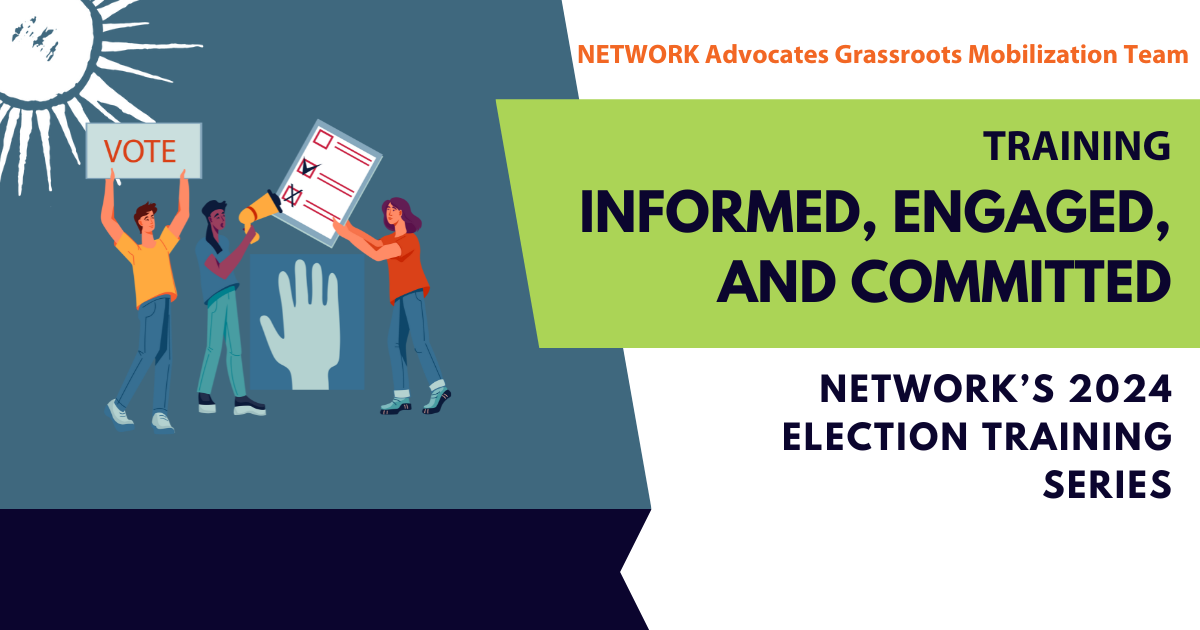

 As we enter the fourth week of Lent, we turn to our deep need to both accept God’s mercy and extend mercy to others. To show mercy to others (and to oneself!) means joining in God’s merciful, broad, and inclusive invitation to work together for the common good, and to transform our structures of racial, economic, and social injustice.
As we enter the fourth week of Lent, we turn to our deep need to both accept God’s mercy and extend mercy to others. To show mercy to others (and to oneself!) means joining in God’s merciful, broad, and inclusive invitation to work together for the common good, and to transform our structures of racial, economic, and social injustice.